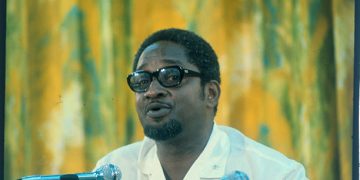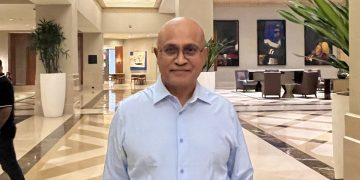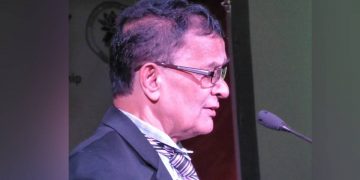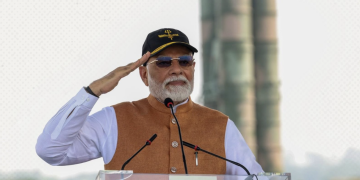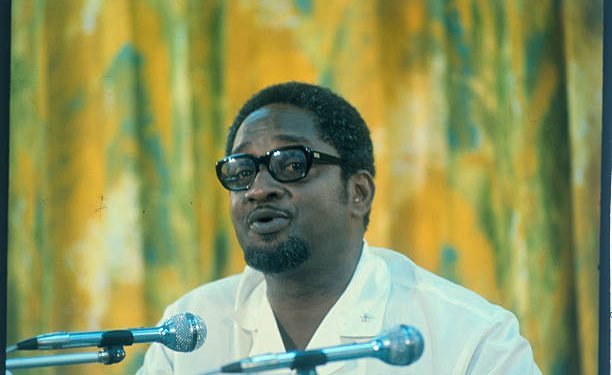Professor Paul Tennassee hosted a program on Globespan with co-moderator, Professor Floyd Haynes a couple weeks ago, with the forum consisting of Mr. Vincent Alexander, Mr. Timothy Jonas S.C. and Dr. Desmond Thomas. The theme of the discussion was “GECOM, Local Government and National Healing.”
Unfortunately, the conversation did not get past the contagious topic of ethnic disparity and the duration was consumed almost entirely with this sensitive, evasive, biased and divided opinions, promoting provocative, controversial, argumentative and skeptical analysis to further continue the advancement of this challenging pandemonium. Trying to arrive at an agreeable conclusion in such a short time will evade any panel on any forum. It can only encourage or discourage vapored meaningfulness and provide anger, disappointment, disagreement and aggravation, for any type of consensus.
As a much talked about issue both at home and in the Diaspora, from all interested corners, parties and individuals, it tends to arouse much curiosity and perplexity, the use and abuse of an excuse, annoyance and calmness, extroverted and introverted feelings, tempered and intense intonations, volatile and controlled reactions, disruptive and disciplined interruptions, distracted and composed attention, misinterpretation and comprehension, and, an unlimited amount of evolving action and reaction. Speculations and anticipations remain unimaginable and nothing surprises the Guyanese society anymore, for, people are prepared to expect more of the worse than the better opinions.
This country has been tranquilized and brainwashed by controlling and dictatorial elements who deliberately foster their greedy ambitions at the expense of the innocent mass. Few are bold, brash and brazen to illustrate their thoughts with an ounce of honesty and within the realm of reasonableness, not void of the fearsome truthful facts.
Academics and amateurs would willingly opine that, poor leadership subscribes to this ailment of acclaimed ethnic disparity, if it truly exists in any form or shape, real or surreal. This may be the only reason which will be fully and whole heartily embraced unreservedly by all Guyanese without hesitation, regardless of race or class, if there is a need to trace causation and not the root. There is no established data from any professional and authorized study to support or suppress this sentiment. Wealth distribution in Guyana is vaguely perceived and grossly overstated. What meets the eyes is misunderstood and not microscopically identified in its proper perspective. Who owns the hog of the wealth is a dangerous assumption and not properly identified as per the true ownership and the correct amount. Prejudice will easily influence a closed mind approach, ignoring facts and figures and encourage only what a personal agenda desires to accomplish.
Historically, Afro and Indo Guyanese have shared a mutual struggle to overcome a defined domination from a playing field that was relatively level. Banded together, they were seated on a domestic domain with equal opportunities after the abolition of slavery and the arrival of indentured laborers. The Afro Guyanese, if at all, would have had an edge having established themselves after gaining freedom in 1833 and before the arrival of indentured servants in 1838.The Indigenous Guyanese were originally plundered by foreign invaders who exploited them (Amerindians) from the very inception of their (the explorers) arrival. Their habitual confinement in the hinterland and interior of the country, restricted these people from open community upbringing with those residing on the coastal belt. The Europeans, Portuguese and Chinese were exempted from this class competition because, they were not subjective to the same trashing and treatment meted out and experienced by the other groups of people. At the end of the importation of Indian laborers in 1920, it was a matter of assimilation, adaptation and application of a cultural hereditary which catapulted Indo Guyanese to reap their current status. This transgression is an award for dedication, devotion, sacrifice, risk and family turn over which is translated as, bearing the fruit from a tree planted, watered and nurtured.
The way of life for each race attracted the development or underdevelopment of the people, deploying systematic care, attention and interest or employing methodical laxity, languid and spiritless adaptations. Capitalist, communist, socialist and cooperative approaches, boosted or compromised the competitive forces to determine the individual or group input and to decide the output. Deferred gratification as an affluence, undermined the result of one’s true ability and stifled any natural recourse. Whereas, the level of commitment influenced saving, spending and conservative deployment, the attitude towards consumption based on less foresight and more hindsight, materialized a conflict of coveted enthusiasm which seeded a taste of avoided resentment.
Prior to Guyana’s independence and afterwards, Indians were always shrouded with a “coolie” mentality from society. The liberation of Guyanese afforded all to purchase and/or lease land for agricultural purposes and home construction. Some wasted the land in idleness, others converted them to rich development and the others either sold their lands or left them in abandonment.
Sugar, rice, citrus and other cash crops attracted the cultivation of the strong and weak and the rewarding benefits were either effectively utilized or affectively wasted. Bauxite, timber and mineral mining persuaded the employment for the strong and determined laborers, who were handsomely rewarded. Gold seekers were occupied with rich and fast turnover. The Civil Service and the teaching profession engaged a favorable group, especially with a political and religious bias. The Army and Police Force from time immemorial to date, remain an absurd unbalanced configuration. All government offices and agencies sport a domineering and dominating victimized trajectory.
Thirty-three years of an Afro based Government administration, provided golden opportunities for the development and deployment of the majority-based members, supporting the party. The Co-op Bank, the Agri Bank and all the other agencies established overnight to cater for a tailor fit need, were explored, exploited but sadly, exploded. Cooperative societies were crafted to take care of the die-hards as promised by foxy and greedy orators. The banning of essential items, currency exportation and the trampling of selected privileges were carefully orchestrated to create special hardship and particular duress. The establishment of KSI accommodated political card holders to avoid unnecessary exploitation and cushion a back door compensation. The wealthiest industry, gold (now oil?), is not owned by Indians. Maybe, 25 percent of an all-inclusive society again, represents a tempered middle-class society, sharing descent “wealth.” The remaining probable 70 percent of the population, consisting of sheer struggling Afro, Indian, Indigenous and mixed Guyanese, are all desperate people living below the poverty line and existing because of foreign help from relatives abroad. The bottom of the basin shares a commonality of equal opportunities and equal problems. Their trials and tribulations are hurdled by common preventative political, economic, sociological, criminal and medical factors.
The bottom line is that, there will always be disagreement in trying to arrive or solidify a mutual conclusion with any form of configuration, consolidation or consolation. Then again, what is the yard stick to measure wealth in Guyana? Wealth means a lot of things and differs with each person and/or group of people. Maybe, being healthy is being wealthy! We first have to determine what is wealth? Then start our critical analysis on wealth distribution, exploring notions of equity and fairness.
